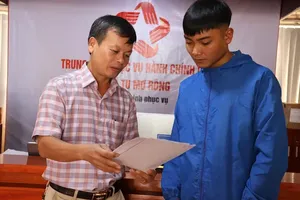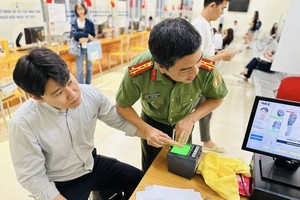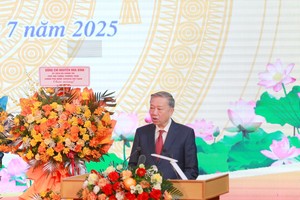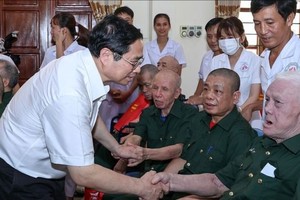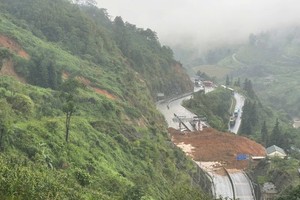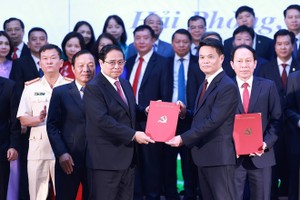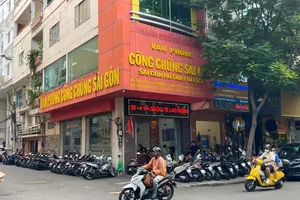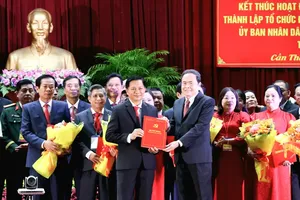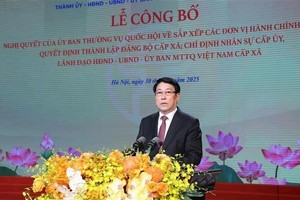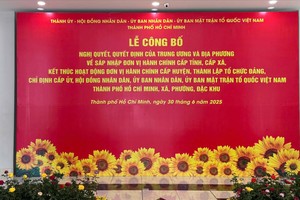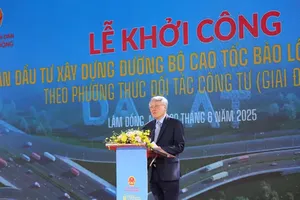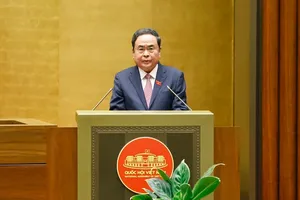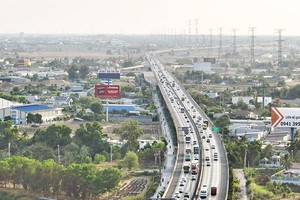Deputy Prime Minister and Foreign Minister Pham Binh Minh re-affirmed Viet Nam's full support for ASEAN's co-operation priorities in 2016 initiated by Laos as this year's ASEAN Chair.
.jpg)
The ASEAN Foreign Ministers' Retreat took place in Vientiane, Laos, on Saturday.
The official made the remarks at the ASEAN Foreign Ministers' Retreat which took place in Vientiane, Laos, on Saturday.
Viet Nam would closely co-ordinate with Laos and other ASEAN member countries to help Laos successfully fulfill its ASEAN Chairmanship, he said.
Minh outlined the need for the ten-member group to prioritise maintaining peace and stability in the region amidst complicated regional security.
The foreign ministers urged ASEAN to uphold its key role in settling regional challenges as well as developing the regional architecture, while further deepening its relations with dialogue partners in order to take advantage of their support for the ASEAN Community Vision.
ASEAN Foreign Ministers debate various issues in Laos
The ASEAN Community Vision 2025 and three blueprints, including the Political-Security Community Blueprint, were among the topics debated at the ASEAN Foreign Ministers' Retreat.
The ministers agreed to identify prioritised areas and measures in the short, middle and long terms, and increase supervision and co-ordination mechanisms at both national and regional levels in order to ensure the progress and quality of the work.
They all gave their support for eight priorities initiated by Laos.
The participants agreed to promote co-operation and connectivity in the three pillars: the Political-Security Community, the Economic Community and the Socio-Cultural Community.
They will also work together to improve ASEAN's ability to cope with challenges and foster relations between the bloc and its partners.
The ministers underlined the need to enhance the efficiency of the mechanisms initiated and led by ASEAN, such as ASEAN+1, ASEAN+3, the ASEAN Regional Forum (ARF) and the East Asia Summit (EAS).
The ministers also touched upon a string of regional and international issues of shared concerns such as situations in the Korean Peninsula and the East Sea, along with non-traditional challenges such as terrorism, cyber security, human trafficking, abnormal migration, climate change, natural disasters and disease.
Regarding the East Sea, ministers expressed their deep concern over the recent complicated developments, including reclamation activities, which they said had eroded trust between countries, raised tensions and threatened peace, security and stability in the region.
They stressed the need to maintain peace, stability and maritime and aviation security and safety in the East Sea, pursue non-militarisation, exercise refrain and address disputes through peaceful measures and in line with international law, including the 1982 UN Convention on the Law of the Sea.
Under the theme "Turning vision into reality for a dynamic ASEAN Community", the AMM Retreat was the first meeting of the ASEAN Foreign Ministers under Laos's chairmanship in 2016 and after the ASEAN Community was formed in December last year.
Later in the day, the Lao Deputy PM and FM held a press conference.
On the East Sea issue, he said as the ASEAN Chair, Laos and other ASEAN member countries would work to push co-operation between China and ASEAN in a bid to continue implementing the Declaration on Conduct of Parties in the East Sea and complete the building of a Code of Conduct.
He said the sides were holding dialogues and working together to ensure the East Sea is an area of peace, safety and development where militarisation is avoided.
On the fringes of the retreat, Minh held a bilateral meeting with his Lao counterpart Thongloun Sisoulith.
The two officials compared notes on measures to step up bilateral ties and agreed to effectively realise agreements reached at the annual high-ranking meeting of the two Politburos last December, as well as the outcomes of the Inter-Governmental Committee's 38th meeting.
The two countries would increase the exchange of all-level delegations and complete documents on border demarcations.
The two sides were determined to tighten their co-ordination within the framework of ASEAN and work together to strengthen intra-bloc solidarity and carry forward the common voice as well as the central role of the bloc in major regional matters.
